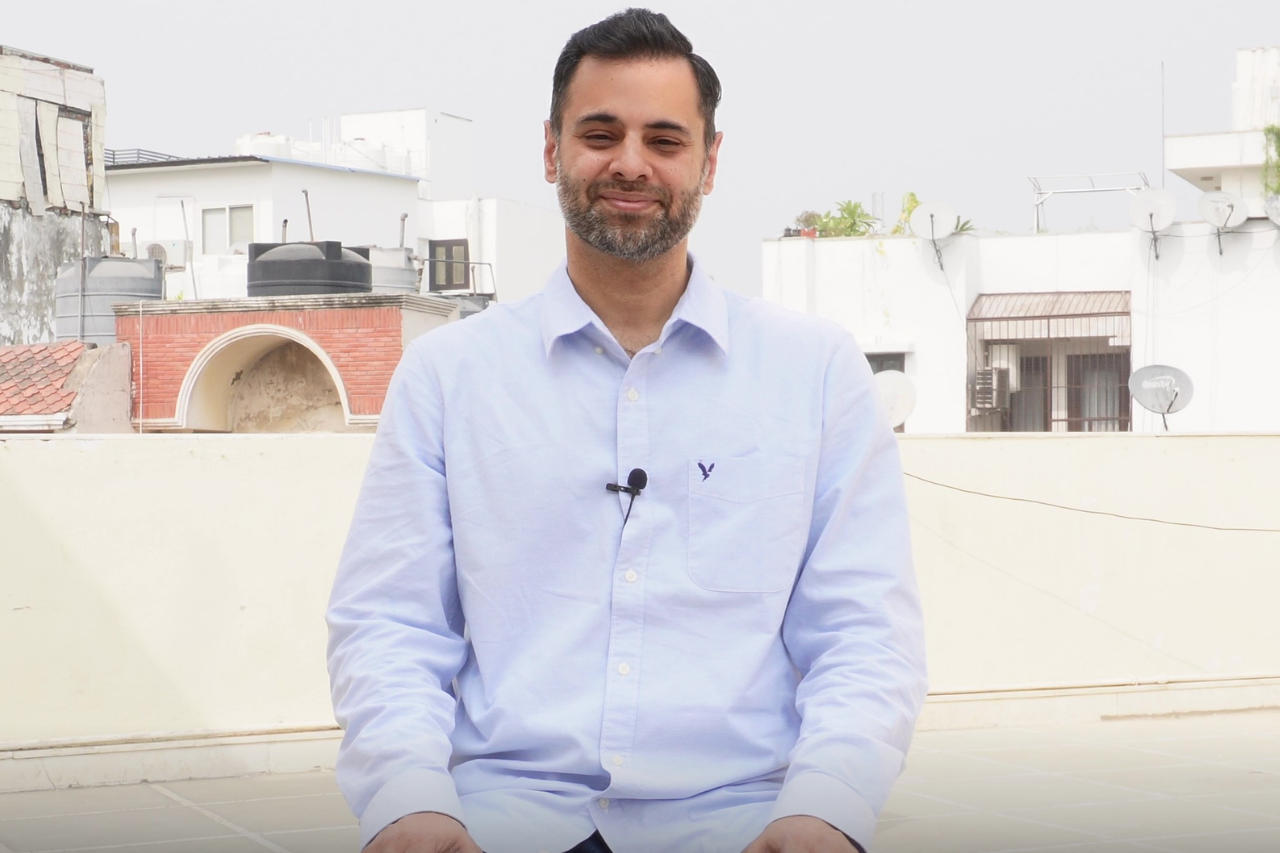Awakening is sudden but deliverance or embodiment of that knowledge is gradual. However, the deliverance is a part of the illusory character’s story. In other words, awakening is non-dual (nobody waking to nothing) but deliverance is somebody changing because of that.
We are most fascinated with this change. This change drives our spiritual inclinations, and search for meaning in life, teachings, traditions, philosophies, gurus, ashrams, etc. Why do we strive for change? Because we don’t like ourselves the way we are.
We have been fed concepts and beliefs of how we should or should not be. And for that, spiritual scriptures and religions serve as authority. The problem is that when you think of a teaching, concept, scripture, or a guru as an authority, you will likely remain conflicted because you’re projecting a solid image of something that is changing.
For example, when you assume a guru to be an authority, you build a certain image of a person which is your own fanciful creation. You feel betrayed and upset when the image changes, which is bound to happen. However, most people are unable to see this projected image as it is an extension of their personal self.
Even if they do see it, it’s hard to accept this fact because it invalidates all the investment – years of devotion and servitude that have been put into strengthening and enforcing this image. The ego does not like to be wrong because it lives in dualism – the black-and-white opposites.
The promise of enlightenment and unending bliss is alluring. The problem however is that I’m not really interested in enlightenment, I only want to escape my painful life. I want to escape the monotony of daily living that does not conform to “my” ideas of what life should be like. I cannot bear to be “here,” therefore, I long to be “there” where my troubles come to an end. I call it attaining God-realization or “becoming” jivanmukta (free while embodied).
Gurus promise me. Scriptures assure me. Philosophy and modern psychology assure me. But I remain conflicted and confused by life. I don’t know what really am I seeking. I don’t know what is it that is going to give me that which will calm my mind. I devote myself to an idea and suffer cognitive dissonance.
I blindly accept what I have been told by others. I’m shut down or stonewalled when I question. I feel guilty when I investigate. I feel that I’m betraying my culture, community, traditions, and so on, when I question their authenticity. I am not allowed any of these things. So where do I go and what do I do?
Never does our attention go to this “I” who wants to “become” something by attaining something else. What is this “I?” That’s an uncomfortable question we don’t like to face because the image of ourselves feels ugly. We want others to tell us about ourselves. How wrong, misled, and ignorant we are. It gives the ego (image) something to work on. It gives the false reassurance that once you attain enlightenment through the guru’s grace, you will become liberated.
The true liberation is in the dissolving of the image of the false self. Therefore, the ego cannot liberate itself by doing anything. There is nothing to “do” because there is no ego or self. This is either seen or not seen. No authority can make “you” see “it.”
My concept is that authority cannot come from the impermanent. Therefore, gurus, teachings, scriptures, traditions, and so on, cannot be authority because they all change. Anything that is in form (no matter how ancient) is a created object and will perish.
A clever trick gurus employ to convince disciples of truth is to quote an authority like an ancient scripture. They propagate the belief that scriptures and religion are infallible. It is difficult to ascertain what the scriptures say because the language changes with time. Therefore, these gurus paint the scriptures in the color of their own understanding.
Osho told a story of a French countess who became so enamored by the color of an ashtray that she ordered the walls of her room painted in the same color. Many painters tried their best to match the color but failed as there was always a noticeable difference.
The ashtray had a peculiar color that was not easy to concoct. At last, one man came and said that he could do it on the condition that he be left alone in the room for a couple of days. The countess agreed and after a couple of days, he came out with the color of walls matching exactly with that of the ashtray.
The countess was overwhelmingly happy and showered him with lots of money. Everyone was bewildered as to how he managed to do this. Long after the countess passed on, he revealed that he first painted the wall and then painted the ashtray in the same color. That’s how the color matched.
That is what gurus do with the scriptures and teachings, they pain everything in the color of their own understanding. The robes, garlands, and all the paraphernalia along with the entourage reinforce the guru’s authority. I also explain the concepts of different teachers in the light of my own understanding but I do not claim to be an authority on any subject or teaching.
I may be entirely wrong about a subject. Therefore, the authority has to come from your own experience. Not from the outside. It is okay to take guidance from people but don’t get caught up in any concept or teaching. Every teaching is a concept, and concepts, in themselves, are not the truth.
Your own experience will reveal the truth and that is the only way to eliminate conflict in daily living. Truth cannot be given to you by another. Truth is your own essence – the changeless that is the eternal witness of all phenomena.
Why Do We Seek Authority?
The need to seek external authority comes from limiting beliefs about oneself. It comes from the deep hidden feelings of unworthiness and shame. The seeker unwilling to confront the discomfort of the created image (that he calls “me”) seeks external authority in the form of guru, scriptures, teachings, and so on.
It is extremely challenging to face ourselves the way we are. It requires courage. We truly do not want to take responsibility so we outsource that work to a guru. The guru gives us stories, teachings, and concepts. It’s all entertainment. The fact is that we really are not interested in looking at ourselves because what we see within is ugly. It takes courage to go within.
We’d rather distract ourselves using indulgences. We are not seriously investigating. We want to behave like children. We want to do what we like and avoid the consequences of our actions. We want the guru to free us. We want to experience the ultimate bliss and supreme enlightenment and we also want to be selective about the process.
In other words, “I want it, and I want it in a way I imagine things should be.” I have a process of enlightenment mapped out in my mind. When I am caught up in that process or methodology, my attention never turns inwards, it remains extroverted. What wants to attain enlightenment is an image that desires to modify itself to become better.
The image itself is blocking the imminent reality that is here and now. We praise the guru, when we get what we want, and we blame them when they don’t deliver what we want. It is pure transactionality with no side receiving what they desire. We are quick to put the gurus on a pedestal and also pull them down when they don’t meet our expectations.
We seek only to attain what we already have in mind, which is just another image of the idealized self. That is how the ego mind expands itself. It creates objects of desire and enlightenment also becomes one such object. The guru, on the other hand, fulfills that need and demands unconditional devotion from the devotee.
What that really means from the guru’s perspective is, “My word is the word of God, and therefore, if you question me, you’re challenging God.” For this to be effective, the guru has to put up a façade of being blissful all the time. This constant show makes the guru even more miserable than the disciple.
If you are aware enough, it is easy to see the fragile person behind the façade of the guru. A genuinely compassionate teacher does not come across as an authority figure. They don’t sympathize, they empathize. While they teach different concepts, they do not cling to any teaching or claim that their methods are superior.
They meet people at eye level and do not look down upon them. And lastly, they are aware of their own shortcomings. In my experience, no spiritual teaching has any meaning if it cannot teach empathy. Most spiritual gurus show an air of arrogance. They show superiority passively. They give the impression that everything in their life is sorted.
This can easily be seen in the behavior of their disciples. If the majority of disciples become aggressive (actively or passively) when the guru or his teachings are questioned, for me, that is a probable sign of brainwashing and trauma bond. I have learned (and continue to learn) from great teachers but none of them were, are, or ever will be my guru. I am prepared to be wrong about everything I know.
Admitting being wrong is way less painful than living with hard and fixed opinions about life. Being open-minded is the first step toward the resolution of conflicts. The idea of all spiritual teachings is to free the individual and not bind them to more concepts.
Teachings are important but they are not an end to themselves. I see teaching as a boat that can help cross the river, but once you have landed at the other end, you have to walk yourself. Your own inner compass will guide you. That inner compass is your real guru.

